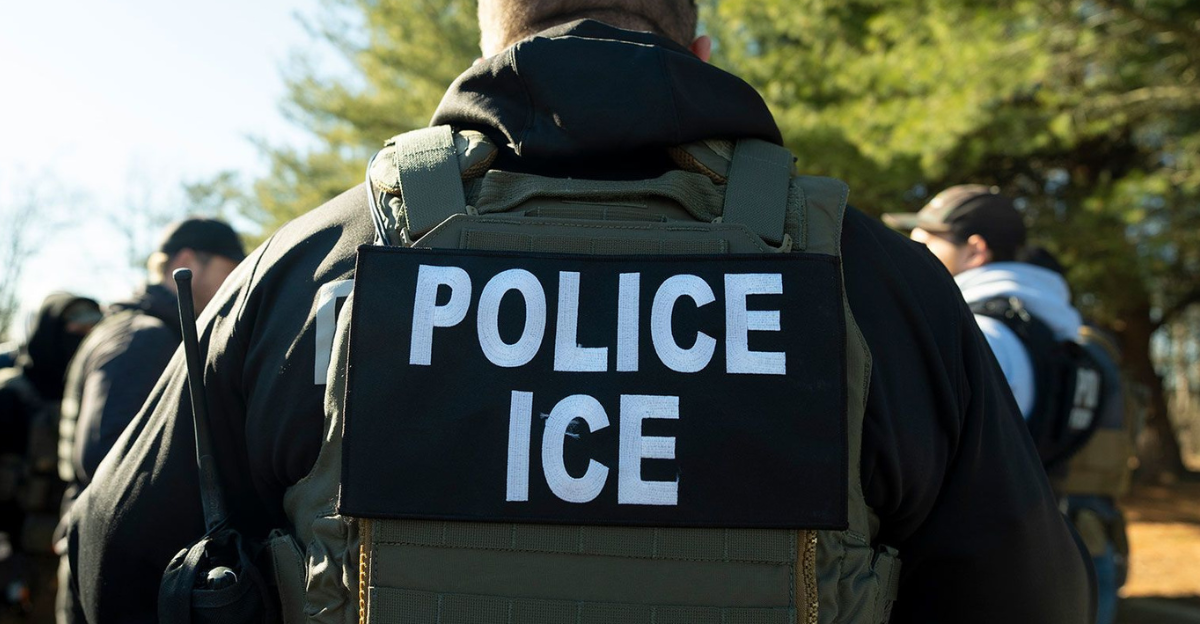The U.S. has been waffling for decades over whether women have a right to refugee protection when fleeing gender-based violence. Under different administrations, the Department of Justice has established and reversed precedents, issued and repealed rulings. But the latest flip-flop by the Trump administration is not just another toggle between rules.
In July, the Trump administration’s high court of immigration, the Board of Immigration Appeals, issued a deeply troubling decision. The ruling held that a “particular social group” — one of the five grounds for refugee protection — cannot be defined by gender, or by gender combined with nationality. The ruling, in a case known as Matter of K-E-S-G-, is binding on all adjudicators across the country.
The legal reasoning is both unpersuasive and alarming. It seeks to return refugee law to an era when violence against women was dismissed as a private matter, not of concern to governments or human rights institutions. It is part of a broader, ongoing assault by the Trump administration on women’s rights and immigrant rights — in this case, attempting to turn back history to 1992.
It was in 1993, at the Vienna Conference on Human Rights, when the catchphrase “women’s rights are human rights” gained global prominence. This was a response to the long-standing focus on the violation of civil and political rights by governments, while much of the violence against women was committed by nonstate actors. Women and girls fleeing gender-based violence were considered outside the bounds of protection. But the Vienna Conference marked a turning point, leading to transformative change in how governments and international bodies addressed gender-based violence — because much of the violence in this world is targeted at women. Laws and policies were adopted worldwide to advance women’s rights, including for those seeking refugee protection.
Under international and U.S. law, a refugee is someone with a well-founded fear of persecution linked to that person’s “race, religion, nationality, membership in a particular social group, or political opinion,” which are commonly referred to as the protected grounds. Gender is not explicitly listed, and as a result, women fleeing gender-based forms of persecution, such as honor killings, female genital cutting, sexual slavery or domestic violence, were often denied protection, with their risk wrongly categorized as “personal” or “private,” and not connected to one of the protected grounds.
To address the misconception that women are outside the ambit of refugee protection, beginning in 1985 the United Nations High Commissioner for Refugees issued a series of guidance documents explaining that although “gender” is not listed as a protected ground, women could often be considered a “particular social group” within a country. The commissioner called on countries that were parties to the international refugee treaty — the 1951 Refugee Convention and its 1967 Protocol — to issue guidance for their adjudicators to recognize the ways in which gender-based claims could meet the refugee definition.
The United States was among the first to respond to the call. In 1995, the Department of Justice issued a document instructing asylum officers to consider the evolving understanding of women’s rights as human rights. The following year, the Board of Immigration Appeals issued a watershed decision, granting asylum to a young woman fleeing genital cutting. The court recognized that claims of gender-based violence could qualify under the “particular social group” category.
Yet the path forward was anything but smooth. In 1999, the same court denied asylum to a Guatemalan woman who endured a decade of brutal beatings and death threats from her husband, while the state refused to intervene. Atty. Gen. Janet Reno found the decision to be so out of step with U.S. policy that she used her authority to vacate it. And so women remained eligible to be considered a “particular social group” when seeking refuge in the U.S. The view was affirmed by a 2014 case recognizing that women fleeing domestic violence could indeed qualify for asylum.
But that progress was short-lived. In 2018, Atty. Gen. Jeff Sessions took jurisdiction over the case of Anabel, a Salvadoran survivor of domestic violence to whom the top U.S. immigration court had granted asylum.
Sessions ruled that domestic violence is an act of personal or private violence, rather than persecution on account of a protected ground. This characterization of the violence as personal or private was in direct repudiation of the principle that women’s rights are human rights, deserving of human rights remedies, such as asylum.
The Biden administration sought to undo the damage. In 2021, Atty. Gen. Merrick Garland vacated that ruling and reinstated the 2014 precedent, restoring a measure of protection for gender claims.
Now comes the recent ruling from the immigration court under the Trump administration. Going beyond Sessions’ determination that gender violence is personal, the court is striking at the heart of the legal framework itself by barring gender or gender-plus-nationality as a valid way to define a social group. This erects an even higher barrier for women and girls fleeing persecution. It is a transparent attempt to roll back decades of legal progress and return us to a time when women’s suffering was invisible in refugee law.
The implications are profound. This ruling will make it far more difficult for women and girls to win asylum, even though their claims often involve some of the most egregious human rights violations. But it does not foreclose all claims — each must still be decided on its own facts — and there is no doubt the precedent will be challenged in federal courts across the country.
Another reversal is now sorely needed, to get the struggle for gender equality moving in the right direction again. Our refugee laws should protect women, because women should not be subject to gender-based violence. That is, in fact, one of our human rights.

https://www.latimes.com/opinion/story/2025-08-03/womens-rights-refugee-gender-human-rights





